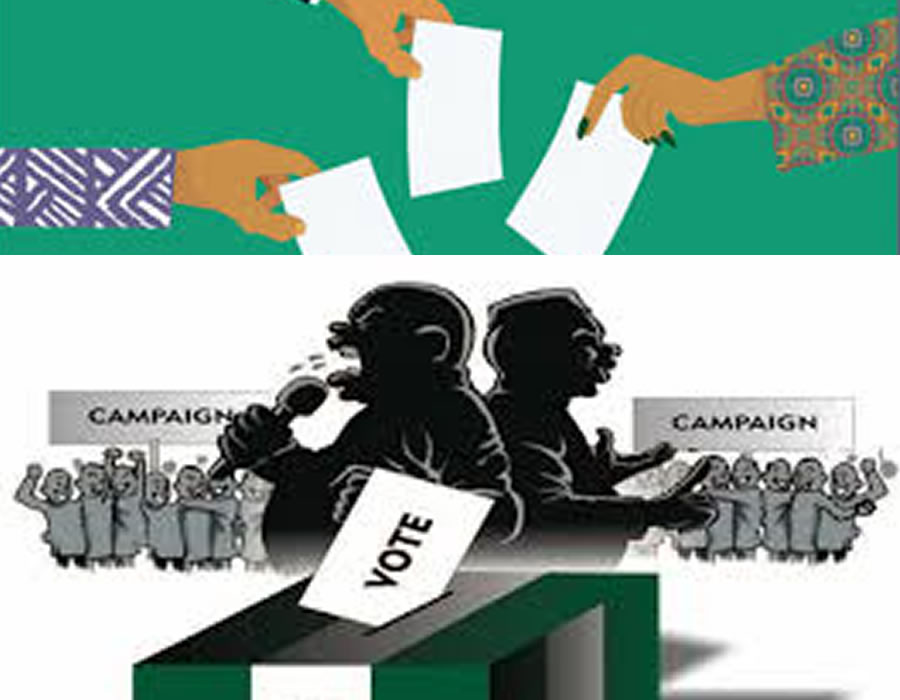On the 18th of March, Nigerians participated in governorship and state Houses of Assembly elections, which were delayed by one week by the Independent National Electoral Commission (INEC) to comply with a Court of Appeal judgment. Voters in 28 states elected new or returning governors on the 18th of March vote, while eight states had off-cycle polls, three of which will take place later this year. The Election Analysis Centre of the Centre for Democracy and Development reported that BVAS was largely deployed and functional for accreditation, and the uploading of declared polling unit results to INEC’s results viewing platform was significantly improved compared to the 25 February polls. However, voter trust in the electoral institution was diminished, particularly in races where narrow margins of victory were recorded or where patterns of the presidential results were not replicated at the sub-national level.
The 2023 Nigerian gubernatorial elections were held for state governors in 28 out of 36 Nigerian states. All but three elections were held on 18 March—concurrent with elections to every state house of assembly, three weeks after the presidential election and National Assembly elections—while the Imo State, Kogi State, and Bayelsa State elections will be held on 11 November. The last regular gubernatorial elections for all states were in 2019. All states have a two-term limit for Governors which makes 18 incumbent governors ineligible for re-election.
Several incumbent governors were ineligible for re-election due to term limits. Nine APC governors were term-limited while nine incumbent APC governors were eligible for re-election. Among PDP governors, eight were term-limited while four could seek re-election. Elections will be held in 18 of the 20 states with APC governors and 12 of the 14 states with PDP governors.
Most Nigerians, international communities, non-governmental organisations, international and local observers of the 2023 General Elections have expressed huge disappointment in the process that birthed new leaders to drive the country for the next four years.
For instance, no fewer than 20 persons were feared killed during the governorship and houses of assembly elections across the country as violence, suppression of voters and apathy took over the process.
It was a do or die affair in most states such as Rivers, Lagos, Kaduna, Kano, Abia, Enugu, Delta, Adamawa, among others, where the incumbent fought their last battles to remain relevant to ensure they keep control of their states either as governors or ex-governors.
In Lagos, the ruling party was said to have planted thugs at every nook and cranny of the state who easily overran the security architecture comprising the State Police Command and other sister agencies supposedly put in place. Lagos State recorded a lot of voter intimidation, tribal fights, violence both in the Presidential Election and the Governorship Election.
The Independent National Electoral Commission (INEC) should carry out intensive administrative and technical improvements. A lot of abnormally was experienced like, availability of materials, arrival time of INEC officials, the BVAS situation and so much more.
INEC should prioritize the security of the electoral process to prevent electoral violence and ensure that voters can cast their ballots in a safe and secure environment. This can be achieved through better coordination with security agencies, training of security personnel, and deploying technology to monitor and prevent electoral malpractice.
INEC should prioritize transparency and accountability in its activities to enhance public trust in the electoral process. This can be achieved through the regular publication of information about the electoral process, including financial and operational data, and ensuring that election results are promptly announced and made publicly available.
INEC should invest in the capacity building of its staff to ensure that they have the necessary skills and knowledge to effectively carry out their duties. This can be achieved through training and development programs, mentoring, and performance management systems.
Overall, INEC should continue to work towards improving the electoral process in Nigeria to ensure that elections become truly free, fair, and credible.
With 10 million new voters added to the voters’ roll, an estimated 95 million registered voters voted in 2023 in 176,846 polling units distributed across 774 local government areas of the country; INEC faced huge electoral challenges, the new technologies being only one of them. Resident Electoral Commissioners (RECs) are the most powerful and influential in elections. The RECs are the representatives of INEC at the state level. The role of RECs is critical for the success of any election. The duties of the RECs include monitoring the activities of all INEC ad-hoc staff/RECs as well as providing for proper verification of election results. In fact, INEC relies heavily on RECs verifications in authenticating the election results on the presupposition that RECs are people of unquestionable integrity. The integrity of INEC’s RECs will therefore play a significant role in assessing the integrity of the 2023 general elections. The commission should re-educate its staff and RECs to toe the path of honour and integrity in future elections.
The Independent National Electoral Commission (INEC) has declared winners in 26 states. The elections in Kebbi and Adamawa were declared inconclusive. The INEC has not announced the date for the supplementary elections in those states yet.
As the London Political Summit and Awards, we are thrilled to acknowledge the perseverance and determination displayed by the two RECs, namely Prof Nnenna Oti, the Vice Chancellor of Federal University of Technology, Owerri, Imo State, the RECs for Abia State and Dr Chukwuemeka Chukwu for Enugu State, in upholding the democratic principles of fairness and transparency throughout the electoral process. Having closely monitored their activities, we take pride in commending their courageous leadership and commitment towards declaring the election results and winners. In light of this remarkable achievement, we will recommend the two RECs to the selection committee for recognition at this year’s London Political Summit and Awards.




